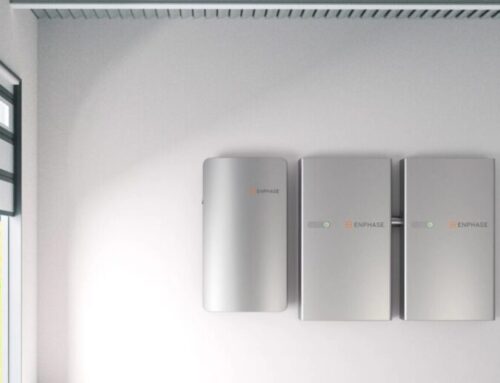
Are you considering installing a solar energy system for your home? If so, you’ve probably come across the terms “kilowatt” (kW) and “kilowatt-hour” (kWh). While they may sound similar, they represent two distinct concepts that are essential to understand when sizing your solar panel system.
Power vs. Energy: The Fundamental Difference
To grasp the difference between kilowatts and kilowatt-hours, it’s important to understand the concepts of power and energy:
- Power is the ability to do work. It is measured in watts (W) or kilowatts (kW), where 1 kW equals 1,000 watts.
- Energy is the amount of power consumed over a period of time to do work. It is measured in kilowatt-hours (kWh).
Solar System Sizing: Why Kilowatts (kW) Matter
When discussing the size of a solar panel system, the common unit used is kilowatts (kW). This measurement represents the total power output of all the solar panels combined.
However, many homeowners often focus on the number of solar panels on the roof instead of the system’s total kilowatt size and kilowatt-hour energy produced. This method of testing system size and ultimately effectiveness is incorrect. Let’s use an example to illustrate why:
- Scenario 1: A system with 26 solar panels rated at 360W each would have a total output of 9,360W or 9.36kW (26 x 360W = 9,360W).
- Scenario 2: A system with the same number of panels (26) but rated at 425W each would have a total output of 11,050W or 11.05kW (26 x 425W = 11,050W).
As you can see, the number of solar panels alone doesn’t determine the size of the solar system. It’s the total kilowatt size that matters. Kilowatts produce kilowatt-hours.

Energy Production: The Role of Kilowatt-Hours (kWh)
While kilowatts define the size of your solar system, kilowatt-hours (kWh) measure the amount of energy that system will produce over a given period—typically a day, month, or year.
Utility companies, including local providers like PG&E, SMUD, and Roseville Electric, use kilowatt-hours as the standard billing unit for energy consumption. If your home consumes 15,000kWh per year, you will need a solar system sized (kW) appropriately to meet your need. Again, kilowatts produce kilowatt-hours.
Importance of Understanding kW vs. kWh in Solar Investments
As a homeowner investing in a solar energy system, it’s crucial to understand the difference between kilowatts and kilowatt-hours to ensure you’re getting the right system size for your needs.
Some solar providers may focus solely on the number of panels, hiding essential information that could lead to a subpar or misleading installation. By asking the right questions and understanding the fine details of your solar system, you can protect your investment and enjoy the long-term benefits of clean energy. In most cases, the solar system must generate enough kilowatt-hours to cover your yearly needs to see excellent financial returns and a positive user experience. Take your time, become informed, and don’t be afraid of the unknown. Any reputable solar company will be happy you are asking these types of questions.

Learn More About Solar Energy Basics
At Sunriver Solar, we are committed to truth, transparency, and helping you maximize your solar energy production. If you’d like to learn more about solar system sizing, battery backup options, or have any other questions about the world of solar, don’t hesitate to give us a call or visit our scheduling page http://www.sunriversolar.com.
Let us help you navigate the world of solar energy and make an informed decision for your home and future. Together, we can harness the power of the sun and make a positive impact on the environment and your pocketbook.
Take a look at some of our work here: https://www.instagram.com/sunriversolar/
Office:530-820-3719
Toll Free:833-321-7866

Phone
Working hours
| Monday | 7 AM–4:30 PM |
| Tuesday | 7 AM–4:30 PM |
| Wednesday | 7 AM–4:30 PM |
| Thursday | 7 AM–4:30 PM |
| Friday | 7 AM–4:30 PM |
| Saturday | Closed |
| Sunday | Closed |






